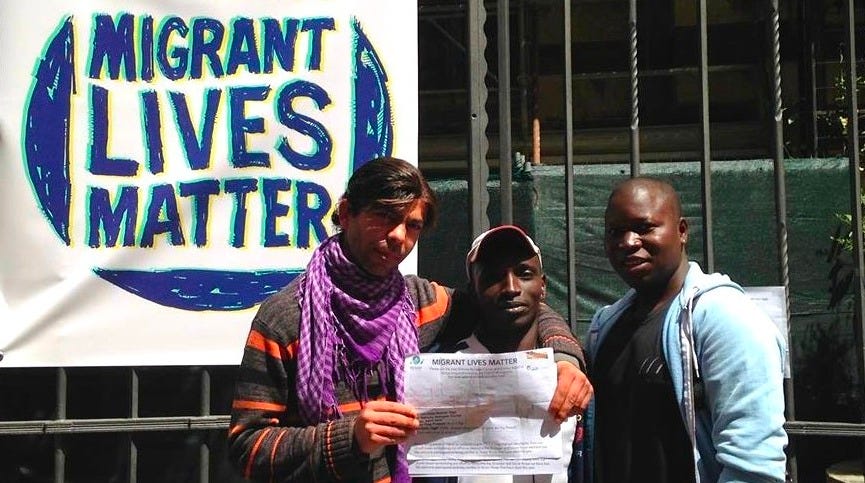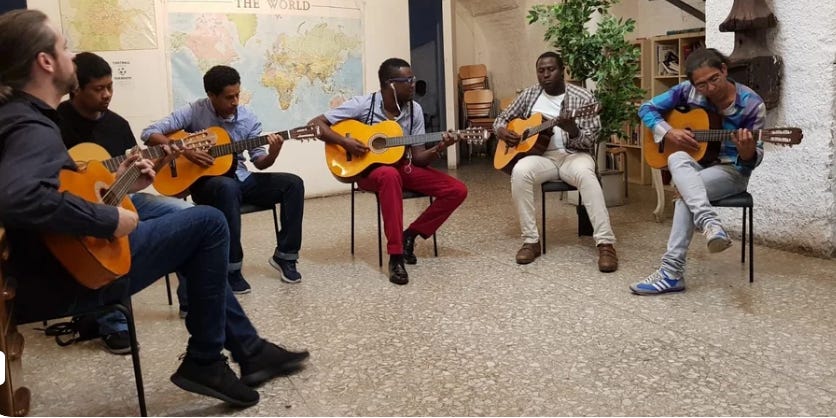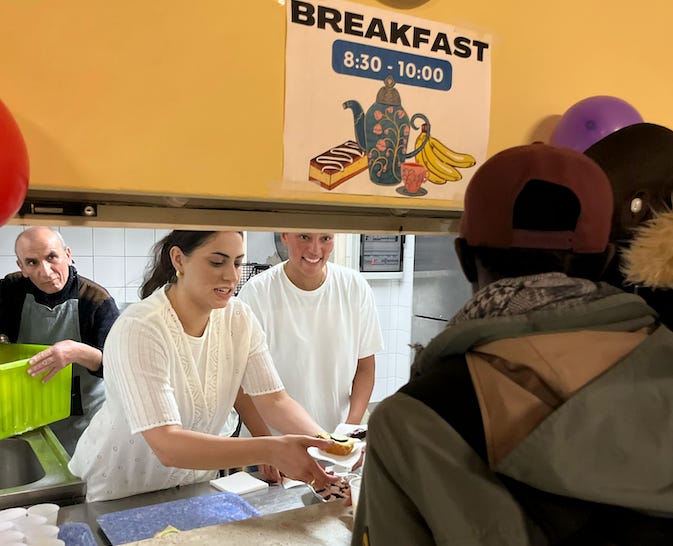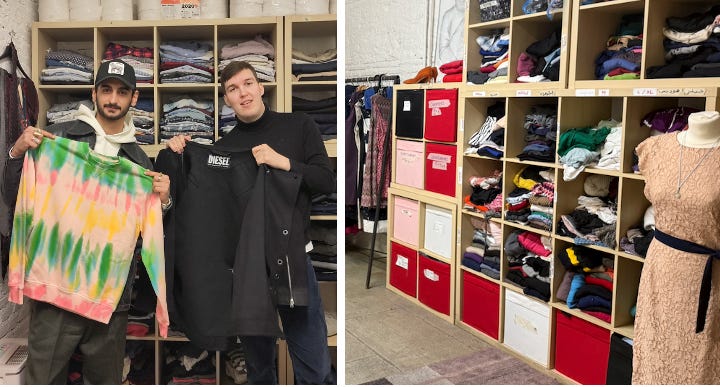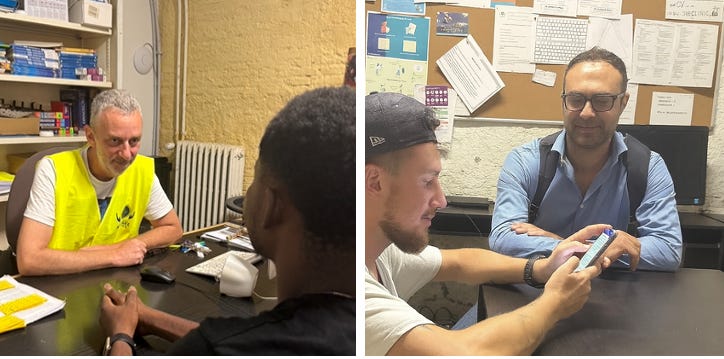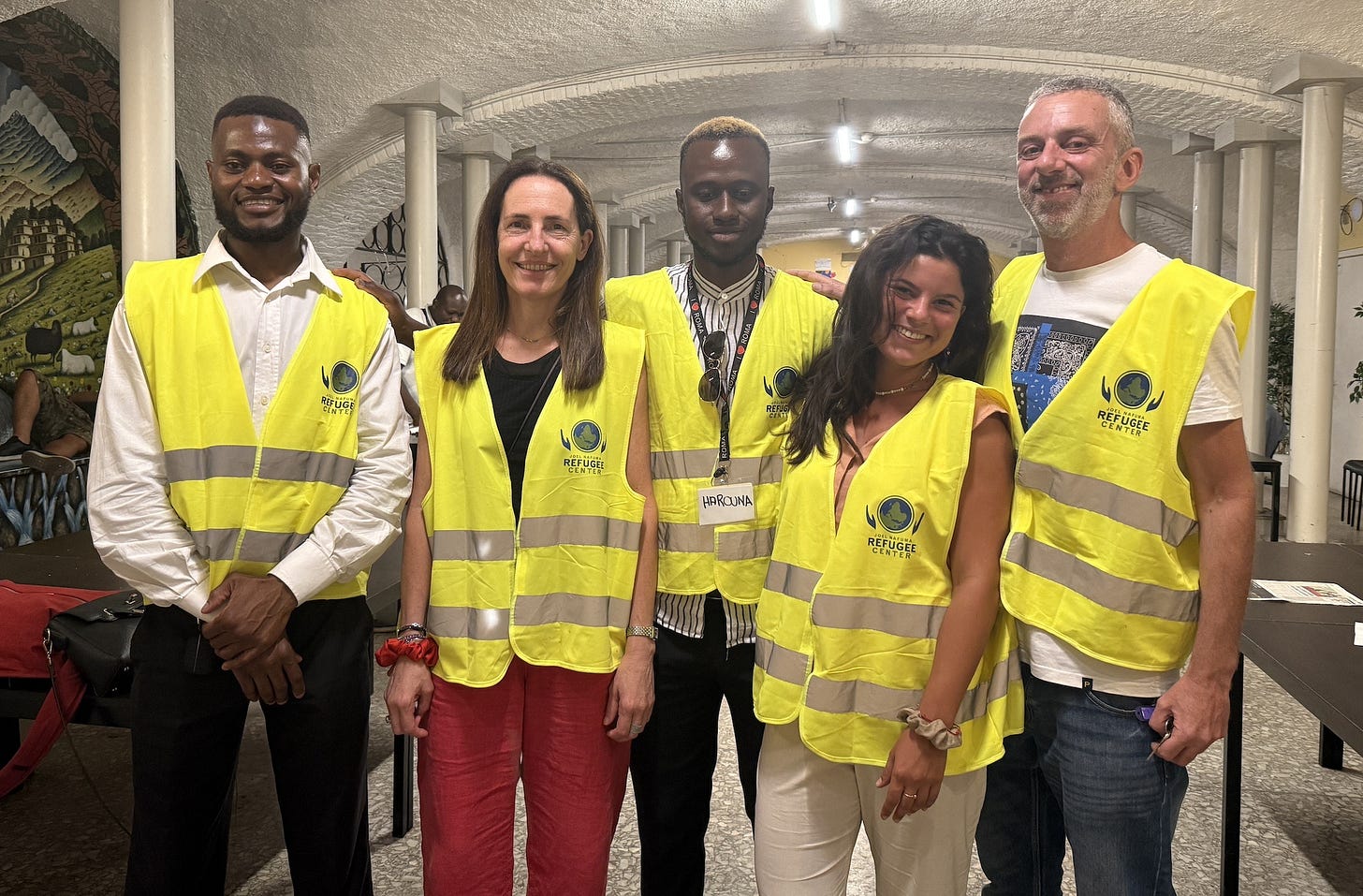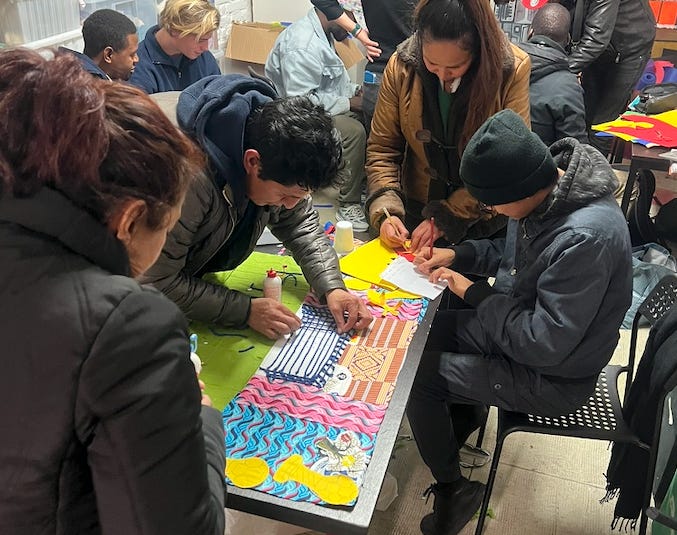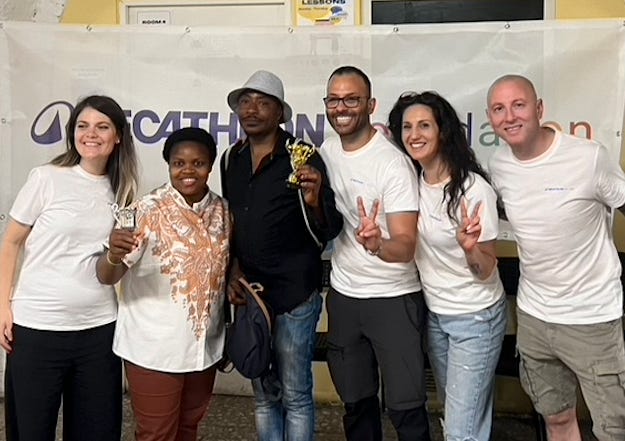Supporting Refugees "at Every Stage of Their Journey"
The Joel Nafuma Refugee Center in Rome has become an international model for its deeply empathetic and holistic approach to meeting the needs of refugees and asylum seekers.
The first thing you notice at the Joel Nafuma Refugee Center (JNRC) is that everyone is greeted as a "guest"— welcomed with unconditional respect and hospitality.
A “relaxed atmosphere” is considered a vital resource for guests, says Managing Director Giulia Bonoldi:
“To be able to offer an open environment where all they have gone through, and are still going through, can in a way be left outside of this place is essential.”
Mahamadou is from Gambia. Nine years ago, he heard about the JNRC from other refugees talking about "a great day center in Rome ... how beautiful it is, how important it is, this center of amazing people doing a great job every day." He and his Malian colleague Harouna now both work for the center.
“Other centers are not like this. The center is family.” - Harouna
The JNRC's core philosophy is a holistic approach that aims to help individuals integrate into society and become economically independent. But, says Giulia, "you can't proceed in your development process if you don't first have your basic needs fulfilled."
The wide array of vital services provided includes
Food: Breakfast is served to about 150 guests each morning, adding up to 37,500 meals a year.
Basic Necessities: 15,000 items distributed annually include clothing, toiletries, and sleeping bags (as a day center, the JNRC does not provide night shelter). Shoes, Giulia notes, "are something we are always in need of."
Education and Skills: The JNRC holds English and Italian language classes, computer lab access, and job clinics that include resume writing.
Legal Aid: An immigration lawyer provides free advice regarding permit renewals, asylum, and family unification.
Psychosocial Support: The center offers sessions in art therapy and music as means of expression.
Tailored support for "every stage of their journey" begins when new arrivals register with Piero Rijtano. Having run operations at the JNRC for over 12 years, Piero finds his work challenging but incredibly rewarding: "This center has given me an important skill ... to see things from different points of view."
Piero recounts what he learned from an African shepherd. Piero had assumed that living in the streets would be the hardest aspect of life for refugees. But the shepherd said he was used to being with animals, sleeping outdoors, and facing dangers from lions, for example. "The biggest problem was not having to sleep outside. The real problem was accepting food ... he said that 'to be in a line for food is the thing that humiliates me.'"
Over the years, Piero has welcomed guests from over 60 countries. Currently, most come from Africa, the Middle East, and South America. And they tend to be young: "I think the majority are less than 30 years old. When you decide to leave your country for another one, the younger you are, the best chance you have."
While the JNRC operates in English and Italian, approximately 50% of its guests do not speak either language. This makes Mahamadou's presence particularly valuable: "I speak seven African languages in addition to Italian and English."
The help of an Afghan colleague who speaks several Afghan dialects (in addition to French and Spanish) was instrumental for one of immigration lawyer Davide Lodi's notable cases—that of a pregnant Afghan woman who was a refugee in Iran with her two children. Her husband, who was already in Italy, wanted to apply for family reunification. Lacking evidence of their family connection, Davide needed to secure a visa for the woman, but had no way to secure her proxy signature. In the end, he “managed to skip this part using an interpretation of the European law and the Italian law, which says that when it's too difficult to get the power of attorney, the judge can check that power later when the person comes here."
Davide volunteers his time at the JNRC. Giulia also started as a volunteer, as did Piero, Human Resources Manager Sharon Nagliero, and Communications Officer Madeline Hennig as well. The center relies heavily on volunteers who come from all over the world. Many Americans are study abroad interns. The JNRC, which operates in English and Italian, has active partnerships with schools including Temple University, the University of Notre Dame, Loyola University Chicago, and John Cabot University.
A Temple student recently wrote, “I assumed … that it would likely be a somber and disheartening experience. However, much to my surprise, it was actually the opposite! People there were smiling, having fun, and genuinely seemed happy to be there. It was beautiful to witness!”
A distinguishing aspect of the JNRC—named for an Episcopal priest who fled persecution in Uganda over 40 years ago—is that while it is located at St. Paul's Within the Walls church in Rome and is associated with the Convocation of Episcopal Churches in Europe, the center is defined as a non-religious organization. As Giulia explains, "While we are guided by the Christian values of acceptance and embracing our neighbors.... we don't want to impact negatively on people of different religions who come from different cultures. It is essential that this is perceived by people who need help."
Today, the JNRC is the largest refugee assistance program of the Convocation in Europe, and has become what Giulia calls “a point of reference for others.… We set up community practice sessions to train project teams across Europe with operative models that come from the JNRC.”
With an annual budget of just $350,000—70 to 80% of which comes from donations and grants unrelated to the church—the center is stretched thin and in constant need of support. One of the most urgent needs is funding for staff program coordinators; with much of the work currently carried out by volunteers who come and go, continuity of services is always at risk. Donations, which can be made via the center’s site or through the Domestic and Foreign Missionary Society of the Protestant Episcopal Church (specify funds to go to the Joel Nafuma Refugee Center) are tax deductible in the U.S.
The JNRC is proud to partner with many organizations and NGOs. "Partnership is fundamental," says Giulia. This includes working with valued donors and volunteers: "There's nothing that we can't achieve together.
"We are talking about dignity of people, about needs for survival, about hopes and dreams to live a better life. Wherever you go, even if nationalities, religions, and governments are different, human beings are very much the same. So there's a lot that everyone can learn from each other."
Samed, a guest from Mali, couldn’t agree more. At the JNRC he has received so much: “New clothes, breakfast, and help finding a job …
“The JNRC changed my life.” - Samed
A version of this article first appeared in Italian at B-Hop.it

